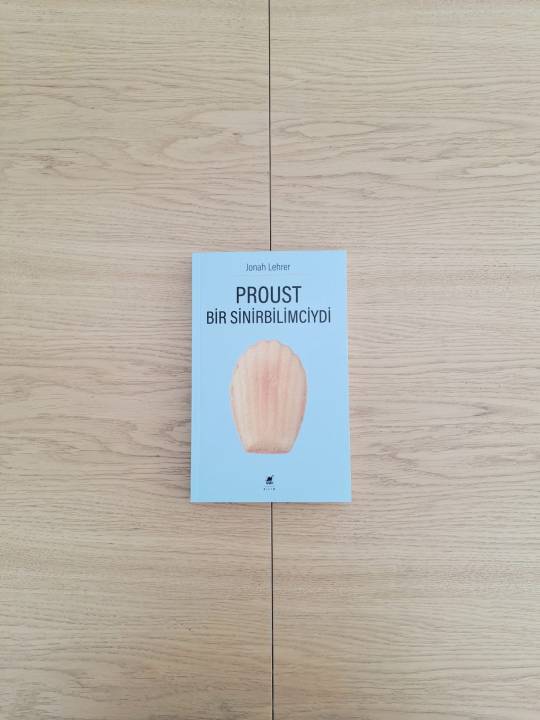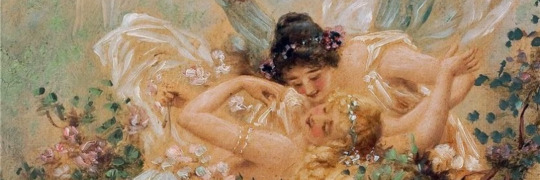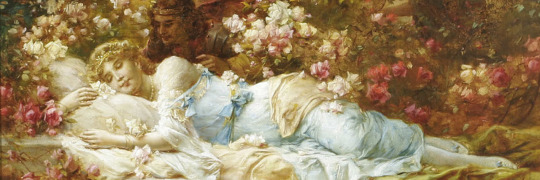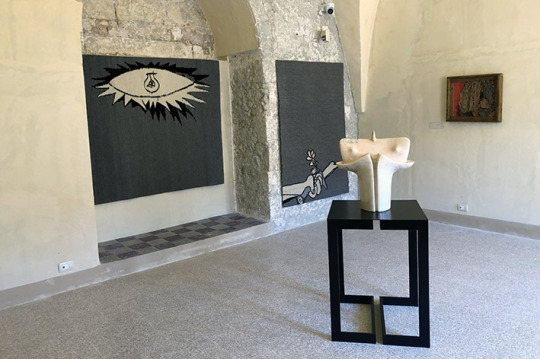#mathesis
Text
Well I'm late, like my midterm exams are finished late to start my thesis as well this blog. But it's what it it. After being sick for a week and still reeling from it, I'd say better late than never and start writing. I'm fucking paranoid but I'm aware being paranoid isn't going to help me so I'm going to kick start my thesis and this blog to hold me accountable. Lezgoooou!
2 notes
·
View notes
Text
leading Chemical Process Equipment Manufacturers From mathesis

For more information visit: https://www.mathesis.co.in/index.php
Plot No. B-35, BHEL-AIE, Ramachandrapuram, Hyderabad – 502032
+91 98857 04874
#industrial equipment#industrial#chemicalindustry#chemicalplant#chemicalmachinery#manufacturers#industry#mathesis
0 notes
Text
ASTEROIDS ☄️
Part 2 ♡♡ Copywrites reserved©️GeminiMoonMadness

CONJUNCT VENUS EDITION♡
The conjunctions of these asteroids to your natal venus should be within an orb of 0°-5°, the tighter the degree the more prominent it will be in your life.
≣≣≣≣≣≣≣≣≣≣≣≣≣≣≣≣≣≣≣≣≣≣≣≣≣≣≣≣≣
Camelot (9500) Conjunct Venus
Gives you an idealistic & visionary nature. Moral & ethical beliefs play an essential role in your life. The home may become a place of importance in their life.
Castalia (4769) Conjunct Venus
Gives you clarity of thought & eloquence. Also gifts you with an unlimited imagination.
Cupido (763) Conjunct Venus
Will put an emphasis on themes of lust, pleasure, joy, delight and sensuality in your life.
Cyrene (133) Conjunct Venus
Gives an Independent, assertive & aggressive nature. You may have a love for physical activity, athletics, combat and the outdoors.
Dudu (564) Conjunct Venus
You may reject religion and strive towards your own personal ideal of perfection & power.
Eugenisis (743) Conjunct Venus
Pursuits relating to child birth, creativity, invention, initiation and commencement are favoured.
Faina (751) Conjunct Venus
The significance of marriage and working partnerships may be emphasised in your life.
Freia (76) Conjunct Venus
Gives you a love for pleasure. Personal charm, beauty and love may play an essential role in your life.
Frostia (854) Conjunct Venus
Gives you a inclination towards scientific pursuits as well as an interest in athletics & intellectual activities/studies. You may be the type of person to help provide aid to colleagues in need. Also themes involving winter and the cold may be sign to you.
Hyrbis (430) Conjunct Venus
There is the possibility of bad manners/rudeness, over confidence and vanity to manifest which can bring your life to ruins if the individual is not self aware.
Aesculapia (1027) Conjunct Venus
Gives a talent and/or interest in the therapeutic, medicinal & medical pursuits. Grants you with good health and a long life, otherwise alternatively, you will have this concept on your mind frequently.
Agina (847) Conjunct Venus
Grants you with ethical virtues, holiness, morality & innocence. Similar to the asteroid above, there may be an inclination towards the healing & medicinal arts.
Aslog (962) Conjunct Venus
Gives you a stormy early life but you eventually rise to a position of power at one stage in your lifetime. You may have extraordinary yet estranged ancestors/relatives.
Asmodeus (2174) Conjunct Venus
May bring attention to lower aspects of one’s being. You may have strong carnal urges & base desires.
Iris (7) Conjunct Venus
You may have a swift, adaptable, transient & unpredictable nature. You have a tendency to instigate communication and mutual understanding. You may serve as a courier, informant, diplomat or mediator. Your boundaries are often crossed
Isis (42) Conjunct Venus
You have a highly compassionate, productive & helpful nature. Gifted with the power to create, revive, nurture & sustain life. You may be involved in healing and caring for others.
Jole (836) Conjunct Venus
You may attract the undesired attention of others. Your charm may come with consequences for your home & family.
Kressmannia (800) Conjunct Venus
Christianity may be of importance to you. Also grants you with an interest in philanthropy.
London (8837) Conjunct Venus
Gives you an interest to the place London itself. You may have an interest in the culture, lifestyle, delicacies, scenery, etc.
Marion (506) Conjunct Venus
Puts an emphasis on the relationship between cousins. Women, especially female relatives play a crucial role in your life.
Mathesis (454) Conjunct Venus
Gives you a lifelong love for knowledge and education. Gives you a talent in mathematics and science. (You’d make a great teacher!)
Oriola (701) Conjunct Venus
Gives you an optimistic, cheerful, high-spirited & prideful personality. You have a talent for vocal expression.
Pales (49) Conjunct Venus
Gives you a passion to care for and handle/manage animals.
Phaethon (3200) Conjunct Venus
Gives radiant, fearless, overly vain, self absorbed & attention seeking characteristics. These individuals may overestimate their abilities.
Roswitha (615) Conjunct Venus
You may find fame through your work. You are the type of person to challenge society’s assumptions about gender.
Stargazer (8958) Conjunct Venus
You have an imaginative & visionary personality. There is an interest in astrological and celestial studies. You absolutely love the night sky and stars.
Ulrike (885) Conjunct Venus
You may have a strong sense of allegiance with friends & family. Possibly have keen, fierce & aggressive instincts. You have divinatory, intuitive or prophetic talent (psychic ability).
Valda (262) Conjunct Venus
You have the ability to lead and command others. You have a courageous, energetic and confident nature.
≣≣≣≣≣≣≣≣≣≣≣≣≣≣≣≣≣≣≣≣≣≣≣≣≣≣≣≣
Let me know if you have any of these placements!
Ps- I appreciate interactions & feedback of all kindsツ
#asteroids astrology#astrology observations#astrology#astro notes#astrology notes#Astro#astro observations#astro placements#astrology aspects#asteroid aspects#astro asteroids#astro community#astrology community#astrotips#astrology placements#astrology placement#easy astrology#asteroids#astro notes#astrology posts#Astro post#astro posts#astrology post#conjunction#conjunct Venus#Venus#conjunction Venus#Venus aspects#Venus aspect#Venus astrology
496 notes
·
View notes
Note
Are there any other astrology books besides the ones you mention in your master list that you would recommend to read?
Oh, I should make a list, thank you for asking. I'll first give you these few ones that I use the most, but I'll try to update it regularly, I have many more recommendations than this. If anyone thinks it's hard to find a good version of any of these you can talk to me through chat and I can send a link.
Beginner's books:
On the heavenly spheres/Tratado das Esferas by Helena Avelar and Luis Ribeiro is the ultimate beginner book. It covers a bit of everything, it's a great compilation of the most used techniques in different forms of astrology, and they definitely do a lot better than the ancients, who couldn't have done anything with this quality and never cited their sources. The authors are also historians who have great academic research on astrology. You should definitely take a look at the Astra Project website and follow their youtube channel. In fact, I met Luis Ribeiro two weeks ago at a conference at my university (coincidentally my university is the only one in Brazil that has a research group that brings together researchers in astrology, called Academia Celeste), where he gave a mini-course and I was impressed above all by his rare way of valuing astrology as an object of investigation, emphasizing the history of its techniques as well, and the ease with which he can teach about its epistemological debates.
Deborah Houlding's Houses: Temples of the sky is the best book on the subject of houses. I believe you have to go to a book that's specific about houses, because the topic really deserves the depth and it's probably the most important thing to understand in astrology.
Hellenistics you could read if you have the curiosity and patience (from I to IV AD):
Marcus Manilius' Astronomica is just beautiful on a lot of points, you should go to it for the poetry, just to have the delight. And his poetry also gives the best and concise insights on the fixed stars and the signs.
Dorotheus of Sidon's Carmen Astrologicum is probably the first most technical book of the ancients that you should go to. It's the most influential and easiest to find. Dorotheus was a contemporary of Manilius, but the versions we have of his book are influenced by later Arabic translations.
Ptolemy's Tetrabiblos. Even though astrologers are right to be ingrates to daddy Ptolemy we should still read him.
Vettius Valens' Anthologies is one I've never really stopped to read, but I believe is important. Sometimes I go there to specific chapters to see what he has to say about a specific subject and it's always interesting.
Firmicus Maternus' Mathesis is a bummer of a book, his delineations are super dramatic, but it's great to read from the beginning to understand Firmicus' logic and you'll be able to get how he thinks and predict what he's going to say next, and this is a testament to how good of a teacher he probably was.
On Horary:
William Lilly's Christian Astrology. There's a reason we all go back to him, it's the fact that is such a didactical book, you can always use it as an instruction manual basically. He gives instructions on how to approach any kind of question and gives so many examples, it's a hit.
On the fixed stars:
The Constellations of Words website is still the easiest source for learning about fixed stars, but here are their most cited books:
Ptolemy's Tetrabiblos book I chapter 9-11, of course, because he's the earliest source and it's important to see the difference between how the hellenistics called and understood the fixed stars and how things changed after the arabics.
Vivian E. Robson's The Fixed Stars and Constellations in Astrology (XX AD) is a must have. It's another one that's strictly astrological and plus gives one method on how to interpret fixed stars.
William Tyler Olcott's Star Lore: Myths, Legends and Facts (XIX AD). This is a great one to get a lot of the different stories and histories of the stars.
7 notes
·
View notes
Photo

sanat kutsalın neyidir?
mathesis (okuyarak bilme), pathesis (deneyimle bilme) gnosis (sezgi ile bilme) ya da gökyüzü altında söylenmemiş söz yoktur* meşrebinize göre ilmel yakin, aynel yakin, hakkel yakin.
bana kalırsa bu kitapta sekiz tane (hissetmenin tözü, özgürlüğün biyolojisi, lezzetin özü, belleğin yönetimi, görme olayı, müzğin kaynağı, dilin yapısı, ortaya çıkan benlik) dile getirilemeyen ‘’öykü’’ (beden, bellek, görme, tat, koku, işitme, dil ve benlik.) hads var.
(hads: sen ve bilmek istediğin şey arasında direkt olarak gerçekleşen bilme türü, kavrayış, sezgi.)
arka kapaktan: marcel proust tüm gününü yatakta geçirir, eski günleri düşünürdü. paul cézanne saatler boyu öylece bir elmaya bakardı. auguste escoffier sadece müşterilerini memnun etmeye çalışırdı. igor stravinski müşterilerini memnun etmemeye çalışırdı. gertrude stein ise sözcüklerle oynamayı severdi. fakat aralarındaki teknik farklara rağmen, bu sanatçıların hepsi de insan deneyimine sonu gelmez bir ilgi duyuyordu. yarattıkları eserler keşif edimleriydi, anlayamadıkları gizemlerle bu şekilde boğuşuyorlardı.
jonah lehrer proust bir sinirbilimciydi’de kendi alanlarına damga vurmuş sekiz isim üzerinden, sanatçıların bilim alanında kanıtlanmış olguları bilimcilerden önce sezgileriyle öngördüklerini herkesçe anlaşılır bir dille anlatıyor. bunu yaparken duygularla düşünceler arasındaki ayrıma olduğu gibi, sanatla bilim arasındaki katı işbölümüne de karşı çıkıyor ve yeni bir yol, “dördüncü kültür” yolunu öneriyor. fakat dördüncü bir kültüre ulaşabilmemiz için öncelikle sahip olduğumuz iki kültürün alışkanlıklarını değiştirmesi gerekir. hepsinden önce, beşeri bilimler samimi bir adımla pozitif bilimlerle bağ kurmalıdır. proust bir sinirbilimciydi bu yolda atılmış önemli bir adım.
#proustbirsinirbilimciydi#ayrıntı#bilim#waltwhitman#georgeeliot#augusteescoffier#marcalproust#paulcezanne#igorsravinski#gertrudestein#virginiawoolf
13 notes
·
View notes
Text
Reading a text cited by Stendhal (but not written by him) I find Proust in one minute detail. The Bishop of Lescars refers to the niece of his vicar-general in a series of affected apostrophes (My little niece, my little friend, my lovely brunette, ah, delicious little morsel!) which remind me of the way the two post girls at the Grand Hôtel at Balbec, Marie Geneste and Céleste Albaret, address the narrator (Oh, the little black-haired devil, oh, tricky little devil! Ah, youth! Ah, lovely skin!). Elsewhere, but in the same way, in Flaubert, it is the blossoming apple trees of Normandy which I read according to Proust. I savor the sway of formulas, the reversal of origins, the ease which brings the anterior text out of the subsequent one. I recognize that Proust’s work, for myself at least, is the reference work, the general mathesis, the mandala of the entire literary cosmogony––as Mme de Sévigné’s letters were for the narrator’s grandmother, tales of chivalry for Don Quixote, etc.; this does not mean that I am in any way a Proust “specialist”: Proust is what comes to me, not what I summon up; not an “authority,” simply a circular memory. Which is what the inter-text is: the impossibility of living outside the infinite text––whether this text be Proust or the daily newspaper or the television screen: the book creates the meaning, the meaning creates life.
roland barthes, the pleasure of the text trans. richard miller, 1975
16 notes
·
View notes
Text
Magic of Science
@kristanna-days
Mad Scientists
Anna sat in the corner of the library by the fireplace as the rain battered against the windows. It had been raining the last two days, but the library was warm and cozy.
“There you are!” Kristoff exclaimed as he walked in.
“Where did you think I’d be?”
“I don’t know, meeting with some dignitaries?”
Anna shook her head, and snuggled into him as he sat down next to her on the sofa.
“Mad Mathesis?” Kristoff read over her shoulder.
“Mathesis is Greek for science,” Anna explained. “It’s a poem, so of course they can’t just say what they mean.”
9 notes
·
View notes
Text
immediately after stating that the Aufbau’s fundamental goal is to solve “the problem as to how scientific concepts are to be reduced to the ‘given’”[1], Carnap writes: “There is a connection with the goal which was proposed by Husserl, namely his ‘mathesis of [lived] experiences’ (Phän., 141-§75)”.[2] However, such a mathesis is an axiomatic or more geometrico form of investigation of lived experiences - more accurately, of pure lived experiences - that Husserl considers as inadequate, and against which he advocates “ a purely descriptive” form of investigation. The epistemological characteristic of this purely descriptive approach is to provide all statements about pure lived experiences with an immediate justification, and, consequently, to make (almost) no use of formal logic. It is important to note that in Ideas I such a mathesis of pure lived experiences is not declared, however, to be impossible, and that § 75 of the book explicitly leaves the problem of its scientific relevance and actual feasibility unsolved. It is therefore also legitimate to read the Aufbau as pretending to answer Husserl’s perplexity on the issue by offering, if not a fully axiomatic kind of investigation of pure lived experiences - of phenomenology -, at least a crucial component of it, namely a transcendental constructional system.
...
Husserl’s rejection of an axiomatic form of investigation of pure lived experiences is a consequence of his definition of phenomenology as a scientia prima, which implies that formal logic should be founded upon phenomenology and cannot therefore be put to use by it. In other words, I advocated that, from a Husserlian point of view, a ‘mathesis of pure lived experiences’ is in fact prohibited for architectonic reasons, adding that such prohibition, which stands in direct opposition to § 107 of Aufbau where Carnap acknowledges expresso verbo the necessity for the preliminary construction of logical objects, represents a major point of departure within early twentieth century philosophy. This is where Rhine and Danube, to play with Dummett’s beautiful metaphor, start heading in different directions.
Jean-Michel Roy, Carnap’s Husserlian Reading of the Aufbau
5 notes
·
View notes
Text
[II. Presentation - cont'd]
[B. Empirical Psychology; eidetic psychology; phenomenology: the constitution of meaning - cont'd]
2. There is an eidetics of all sciences, i.e. an analysis of these essences in which "no experience as experience ... [plays] the role of foundation".
a. So: it doesn't matter whether the geometer is hallucinating or not, but it matters a lot for the physicist.
b. We can therefore draw up a table of the different eidetics
See Ideen:
formal:
Formal ontological, (mathesis universalis), logic
material:
math[esis] phenomenology, (for consciousness)
– Michel Foucault, Husserl and Psychology, (Annex), ca. 1952-1955, BnF, Fonds Foucault, NAF 28730, établie par Sabot et Ewald
2 notes
·
View notes
Text

Ἀσπάζομαι!
This is my main blog (@chorale-tourterelle), and it is dedicated to a variety of different topics.
。⋆୨♡୧⋆。
Index:
PHILAUTIA
Selfcare (Skin, Body)
Mental Health
Physical Health (Excersize, Gut, etc)
Motivation
PNEUMA
Astrology
Divine Feminity
Manifestation/Affirmations
TEKHNE
Artwork
Moodboards
Makeup
MATHESIS
History
Languages
Eytomology
MAGEIROS
Recipies
Baking
Cuisine
GEORGOS
Off-Grid
Foraging
EROS
Romance
。⋆୨♡୧⋆。
Thank you for taking the time to read my pinned post

6 notes
·
View notes
Text
Pace, guerra e dintorni
Sassari. Giovedì 30 maggio, alle 17, la Pinacoteca nazionale di Sassari ospiterà il convegno dell’Associazione Sassarese di Filosofia e Scienza. Per l’occasione verrà presentata l’edizione di un numero speciale della rivista MATHESIS, Dialogo fra saperi che celebra i 25 della rivista. Il tema affrontato sarà Pace, guerra e dintorni e ne parleranno, dopo i saluti della direttrice della Pinacoteca…

View On WordPress
0 notes
Text
Top Quality Chemical Process Equipments for industry From Mathesis
more details visit: https://www.mathesis.co.in/index.php

Carbon Steel IS 2062, SA 516 Boiler Quality all grades used in Unfired Pressure Vessels.
SS 316, SS 304, SS 310, SS 2205, SS TI.
Hastealloy C 22, C 276, Copper.
#industrial#industrial equipment#chemicalprocessing#industrial parts supplier#manufacturers#chemicalplant
0 notes
Link
Αστροφυσική και Φιλοσοφία στην ανοιχτή πλατφόρμα γνώσης Mathesis-Η ποιοτική διαδικτυακή εκπαίδευση συνεχίζει να προσφέρεται ελεύθερα μέσα από την πλατφόρμα του Mathesis σε κάθε ανήσυχο πολίτη. Από τη Δευτέρα 26 Φεβρουαρίου 2024, δύο νέα μαθήματα εκλαϊκευμένης αστροφυσικής και φιλοσοφίας έρχονται στην οθόνη του υπολογιστή...
0 notes
Text
Research - Artistic Research
Excerpts from:
What is artistic research?
JULIAN KLEIN, What is artistic research?, Gegenworte 23, Berlin-Brandenburgische Akademie der Wissenschaften 2010
WHAT IS ARTISTIC RESEARCH?
Research
According to the UNESCO definition, research is "any creative systematic activity undertaken in order to increase the stock of knowledge, including knowledge of man, culture and society, and the use of this knowledge to devise new applications." (OECD Glossary of Statistical Terms, 2008).
(...)
Research therefore means not-knowing, rather: not-yet-knowing and desire for knowledge (Rheinberger 1992, Dombois 2006). Research also seems to be no unique selling point of scientists, but to include many activities that have been made by artists, for example.
(...)
"Research about / for / through Art | Art about / for / through Research."
(...)
Even natural scientific research alone is very diverse in its objects, methods and products, as McAllister (2004) notes. How much more this applies to research including the humanities and social sciences, and further industrial, market or opinion research. Not surprisingly, this is also true for artistic research. Among the authors cited here, there is agreement that this diversity has to be preserved against efforts to canonical restrictions.
(...)
The principal diagnosis is, however, "research" in the singular exists not more than "science" or "art" - they all are collective plurals, assembling very different processes, which often are closer related to others over category boundaries, like disciplines, than with some other members of their own faculty, and then assemble much better under common interdisciplinary roofs, such as topics, methods or paradigms. This “urge of singularization” is probably the strongest root of the supposed and stubborn opposition between art and science: Baecker (2009) calls this the "organizing principle of the functional difference", which emerged in the 19th century according to Mersch & Ott (2007).
Art and science are not separate domains, but rather two dimensions in the common cultural space. (...) However, at least not everything, what is considered being art, has therefore to be unscientific and not everything that is regarded as science, inartistic.
Research is not only artistic, if carried out by artists (as helpful as their participation may be), but deserves the attribute “artistic”, when made under the specific quality of an artistic experience.
Artistic Experience
In the mode of aesthetic sensing perception is present to itself, opaque and sensible. Artistic experience can be determined similarly as the perception mode of sensible interfering frames (for details see Klein 2009). (...) The artistic experience as well as the aesthetic sensing are modes of our perception and, as such, constantly available, even outside of art works and art places.
In the experience the subjective perspective is constitutively included, because experience can not be delegated and only be negotiated intersubjectively in second order. This is a major reason for the conception of the singular nature of artistic knowledge (Mersch & Ott, 2007, Nevanlinna 2004, McAllister 2004, Busch 2007, Bippus 2010. Dombois 2006 points to Barthes' proposal of a "mathesis singularis" in 1980). Artistic experience is particularly dependent on and inseparable from the underlying undergoings. Artistic experience is an active, constructive and aesthetic process, in which mode and substance are fused inseparably. This differs from other implicit knowledge, which generally can be considered and described separately from its acquisition (see Dewey 1934, Polanyi 1966, Piccini and Kershaw 2003).
Artistic Research
If "art" is a mode of perception, "artistic research" must be the mode of a process. Therefore, there can be no categorical distinction between "scientific" and "artistic" research - because the attributes independently modulate a common carrier, namely, the aim for knowledge within research. Artistic research can therefore always also be scientific research (Ladd 1979). For this reason, many artistic research projects are genuinely interdisciplinary, specifically: indisciplinary (Rancière in Birrell 2008, Klein & Kolesch 2009).
Against this background the phrase "art as research” seems to be not quite accurate, because it is not the art, which evolves into research somehow. What exists, however, is research that becomes artistic - so it should be rather named "Research as Art", with the central question: When is Research Art?
In the course of a research, artistic experience can occur at different times, be of different durations and different importance. This complicates the categorization of the projects, but allows on the other hand a dynamic taxonomy: At what times, in which phases can be research artistic? First, in the methods (such as search, archive, collection, interpretation and explanation, modeling, experimentation, intervention, petition,...), but also in the motivation, inspiration, in reflection, discussion, in the formulation of research questions, in conception and composition, in the implementation, in the publication, in the evaluation, in the manner of discourse - in order only to begin the list hereby. These phases can be summarized only posthoc and categorize, for example in the usual triple of object, method and product. This sequence is important: for the discussion on artistic research is not to fall into a normative restriction in a canonical system (Lesage 2009).
At what level will the reflection of artistic research take place? In general at the level of artistic experience itself. This does not exclude neither an (subjective or intersubjective) interpretation on a descriptive level, nor a theoretical analysis and modeling on a meta- level. But: "It is a myth that reflection is only possible from the outside." (Arteaga 2010). Artistic experience is a form of reflection.
Artistic knowledge
Who are we? How do we want to live? What are things meaning? What is real? What are we able to know? When does something exist? What is time? What's a cause? What is intelligence? Where is sense? Could it all be otherwise? - These are examples of common artistic and scientific interest. Their treatment does not always lead to secure and universally valid knowledge (with regard to the history of science: only in very few cases, no?). The arts are granted the authority to formulate and address such basal and yet complex issues in their specific ways, which don’t have to be less reflected than those of philosophy or physics, being capable to gain specific knowledge that could not be delivered otherwise.
(...)
Some authors require that artistic knowledge must nevertheless be verbalized and thus be comparable to declarative knowledge (e.g. Jones 1980, 2004 AHRB). Others say it is embodied in the products of art (e.g. Langer 1957, McAllister 2004, Dombois 2006, Lesage, 2009, Bippus, 2010). But ultimately it has to be acquired through sensory and emotional perception, precisely through artistic experience, from which it can not be separated. Whether silent or verbal, declarative or procedural, implicit or explicit - in any case, artistic knowledge is sensual and physical, "embodied knowledge". The knowledge that artistic research strives for, is a felt knowledge.
____________________
Excerpt from:
Text: Angelika Boeck and Peter Tepe | Section: On “Art and Science”, What is Artistic Research? W/K Between Art and Science, A Peer reviewed online journal. February 25, 2021. Taken from: https://between-science-and-art.com/what-is-artistic-research/
1. Angelika Boeck: my understanding of artistic research
Since 1999 I have been carrying out research using the means and methods of my artistic practice. My dissertation, titled De-Colonising the Western Gaze: The Portrait as a Multi-Sensory Cultural Practice (2019), is also committed to this position. Artistic research is a broad field; it encompasses many different concepts. I prefer to use the term art practice-based research, as I consider it to be research founded on a particular art practice: firstly, on the artist’s activity in pursuit of a concrete question or a set of not yet clearly defined questions by employing artistic means and methods, and secondly, on the presentation of the process and/or outcome in the form of an artwork. The proximity to scientific strategies and practices lies in the “not-yet-knowing” (Klein 2011: 1); in the desire to show and understand; and in the fact that artists often use ethnographic, sociological, collecting/archiving or laboratory work practices; that they experiment with processes that produce images or deal with new media and technosciences (for example the Brazilian media artist and theorist Eduardo Kac, who manipulated living organisms according to aesthetic criteria as part of his Bio Art or Transgenic Art in the early 1990s). Thus, artistic research can be considered as a means of approaching human subjects (including oneself), objects and contexts (current or historical) — an examination often combined with an interest in gaining concrete experiences in an endeavour to convey these in a sensorially perceptible form (to incite reflection, amusement, disturbance or provocation). Artistic research is therefore not just a matter of analysing a given circumstance or certain emotions.
Reflection takes place during artistic production. Other forms of knowledge production (particularly in the natural sciences) require the use of approved methods, being part of a theoretical discourse and a verifiable, generalisable and comprehensible depiction of the research process. Artistic research functions differently: methodological and the theoretical aspects can often only be identified retrospectively, through a process of reverse engineering. This means that the creation process of the artistic works is examined and put in relation to the works of other artists, scientists and theorists in order to extract the components of which they are made. A written reflection of the artist (formulating the question, identifying the context and conditions, providing information on the method and theory, self-reflection) is possible, but not absolutely necessary; though I do consider it to be profitable.
_____________________
Excerpt from KabK, Lectorate Art Theory and Practice. Taken from: https://www.kabk.nl/en/lectorates/art-theory-and-practice/keywords/artistic-research
Artistic research is distinguishable from other forms of academic research by the central role of artistic practice. The research question derives from the artistic practice of the artist-researcher, the research methods are characterized by the use of artistic practice and materials, and the results of the research project contribute to both artistic practice (on an individual as well as on a more general level) and to artistic academic discourse. Because artistic research is carried out by artist-researchers this produces knowledge, experiences and understanding that cannot be obtained by any other means. They are manifest in the art works and the artistic practices themselves.
__________________
0 notes
Text
Amour intellectuel de Dieu : science universelle ou mathesis universalis
https://espacehott.wordpress.com/2023/03/18/de-legalite-mathesis-universalis-amour-intellectuel-de-dieu-jeu-des-perles-de-verre/
https://espacehott.wordpress.com/2022/12/31/mathesis-universalis-amor-dei-intellectualis-glassperlenspiel/
View On WordPress
0 notes